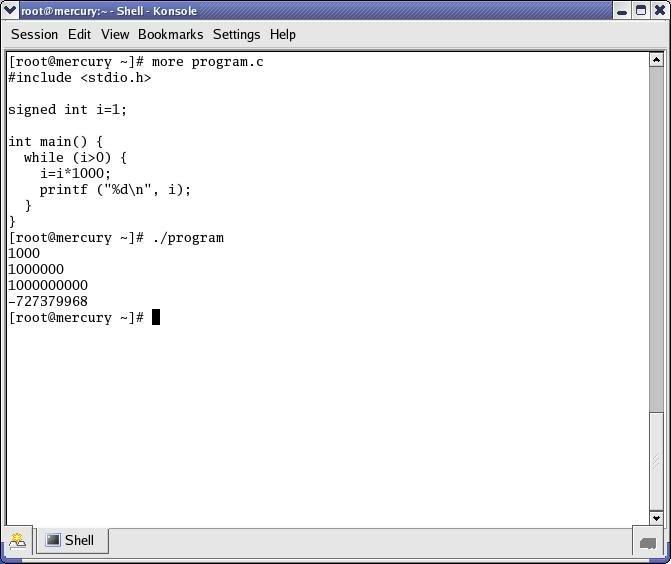I'm trying to get my head around heaps, stacks and overflows and would be grateful for some help!
I created a little while loop that increments an integer until it is larger than the max 32 bit number (2147483647).
The number grew and grew before the program crashed after it had exceeded 2147483647. However, the last number just before the crash was a negative number.
Can anyone explain to me why this is?
I created a little while loop that increments an integer until it is larger than the max 32 bit number (2147483647).
The number grew and grew before the program crashed after it had exceeded 2147483647. However, the last number just before the crash was a negative number.
Can anyone explain to me why this is?



